⚡ Key Specifications
📷 Product Images (16 total)





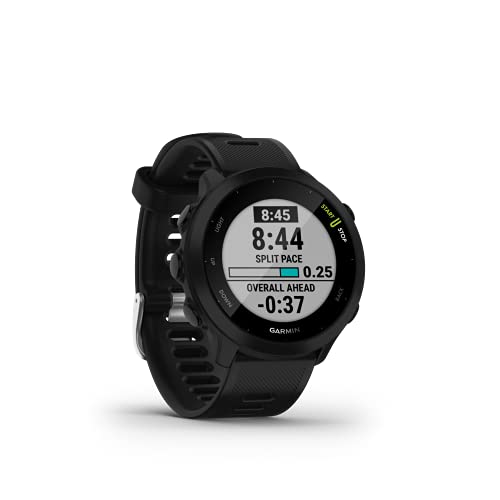
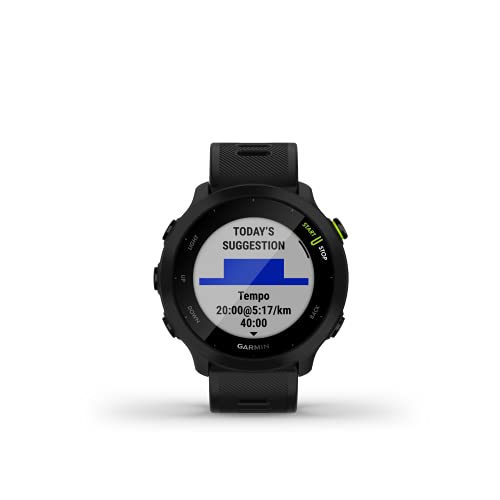
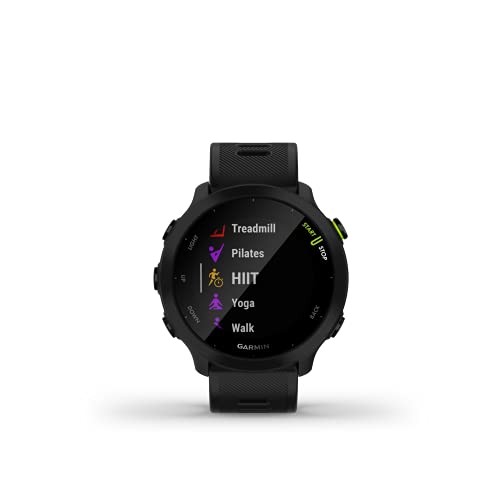




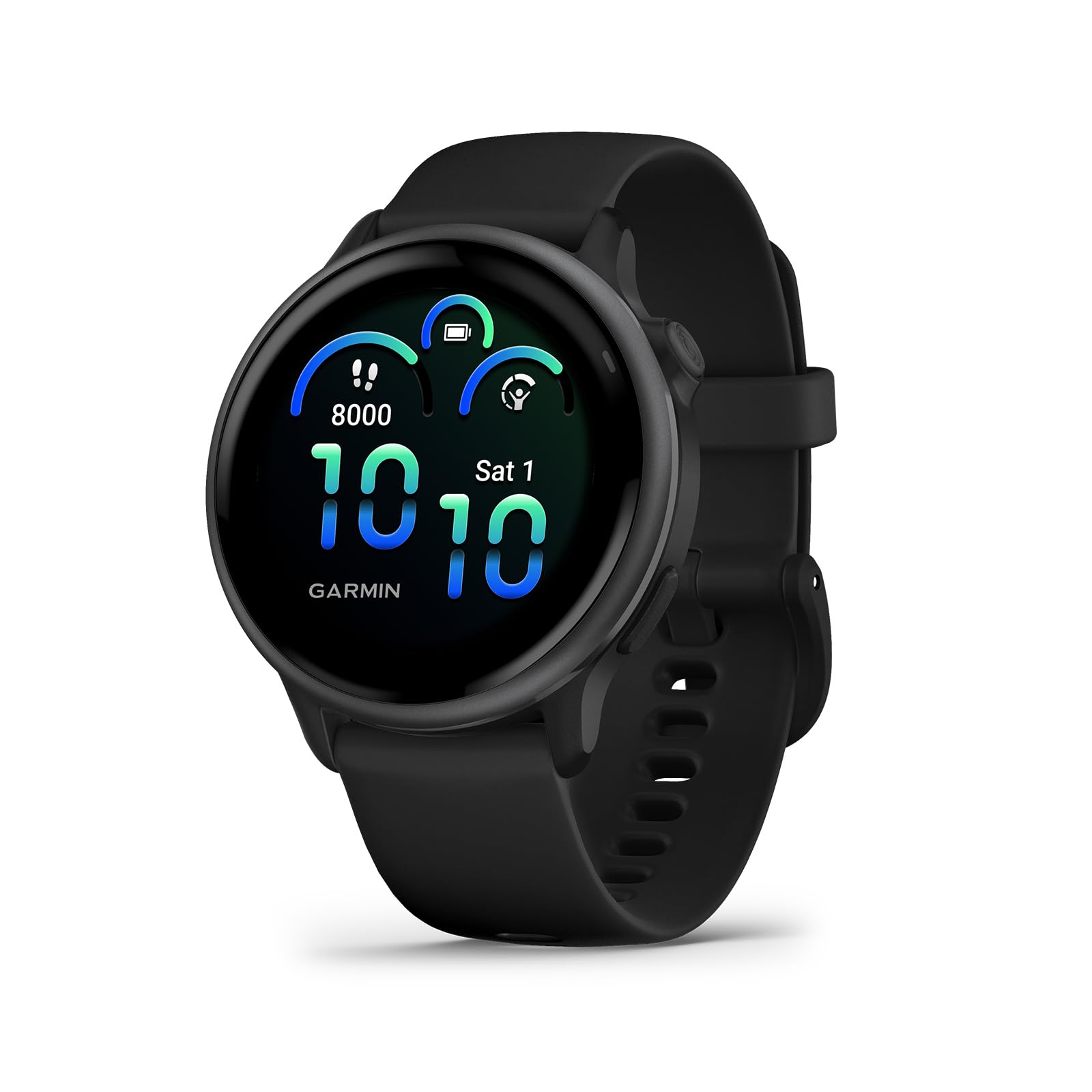
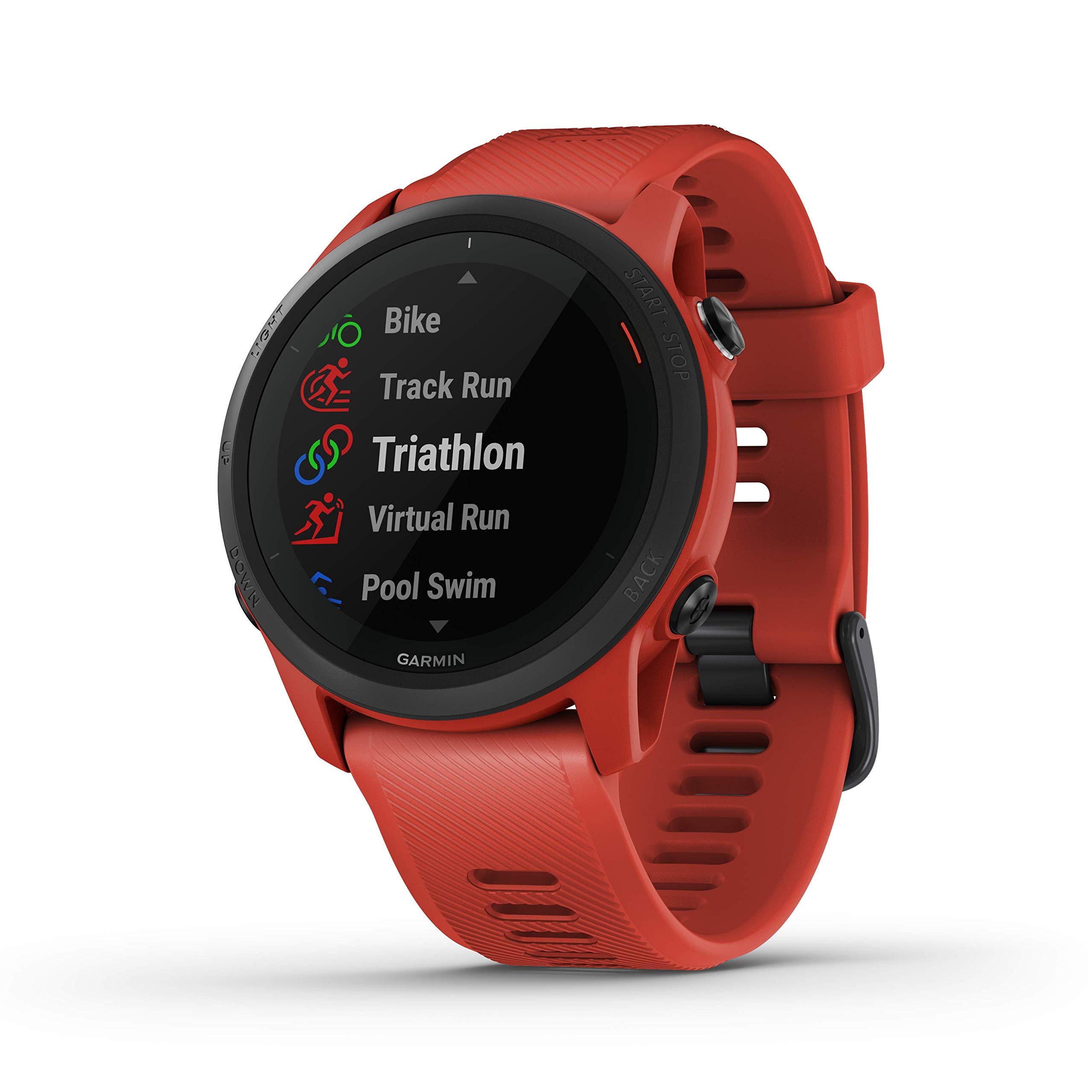
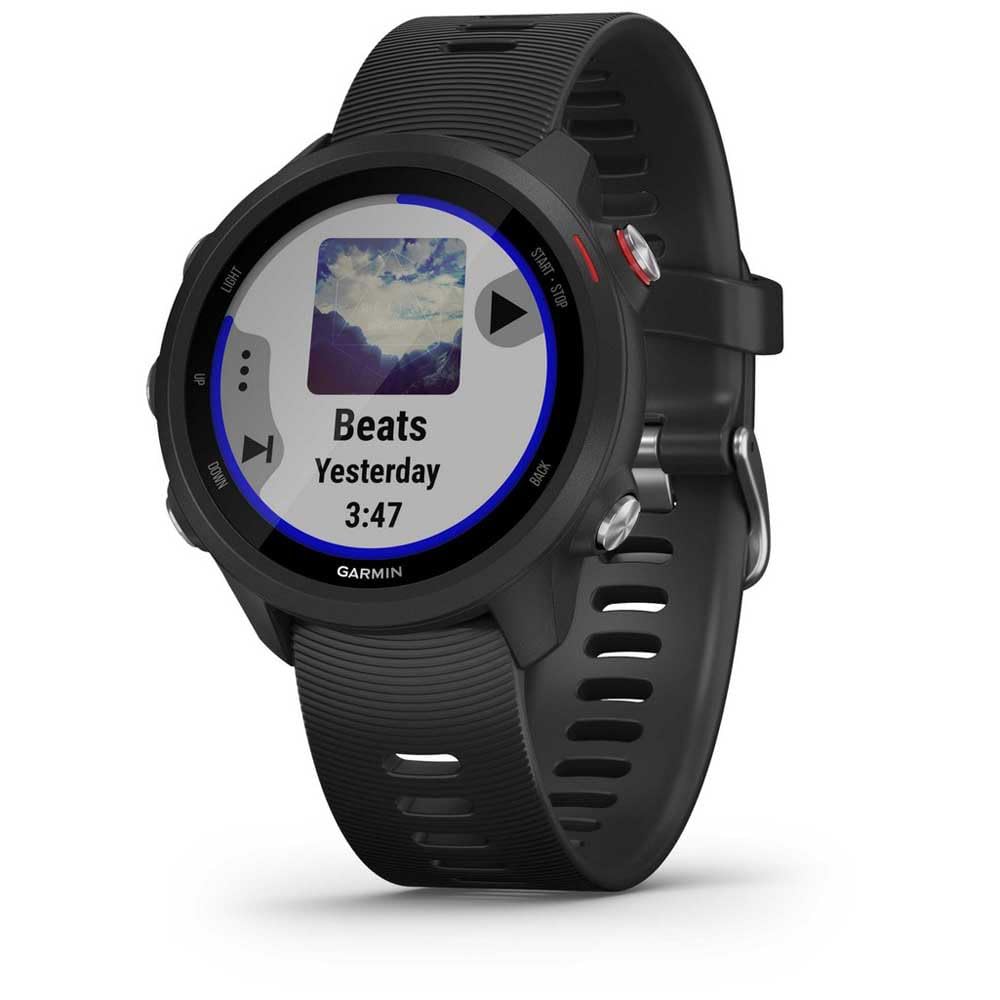

📱 Display
MIP (Memory-in-Pixel) • 1.04" • x
Always-On🔋 Battery Life
14 days typical use
20 hours GPS
❤️ Health Tracking
Heart Rate Sleep Stress🛒 Where to Buy - All Retailers
Garmin Forerunner 55: The Gateway to GPS Running
Overview
The Garmin Forerunner 55 represents the sweet spot of simplicity, functionality, and affordability in GPS running watches. Released in June 2021 as the successor to the popular Forerunner 45, this $199 watch strips away complexity while retaining everything essential for runners taking their training seriously. It’s not trying to be a smartwatch or a multi-sport powerhouse – it’s laser-focused on being the best entry-level running companion available.
Who Is This Watch For?
The Forerunner 55 is perfect for:
- New runners stepping up from basic fitness trackers
- Casual runners who want GPS tracking without complexity
- Budget-conscious athletes seeking Garmin quality at entry price
- Minimalists who prefer simplicity over feature overload
- Students and teens getting their first GPS watch
- Returning runners who need motivation and structure
Skip it if you need:
- Music storage for phone-free runs
- Advanced metrics like Training Readiness
- Maps and navigation features
- Triathlon or multisport tracking
- Premium display technology (AMOLED)
- Extensive smart features
Key Selling Points
1. Two-Week Battery Life
The Forerunner 55’s 14-day battery life in smartwatch mode is exceptional for this price point. Even with daily runs using GPS, you’ll only charge weekly. The 20-hour GPS battery handles marathons and ultra-distance events comfortably. This reliability means one less thing to worry about in your training routine.
2. Garmin Coach Built-In
Free adaptive training plans from expert coaches (Jeff Galloway, Greg McMillan, Amy Parkerson-Mitchell) guide you from 5K to half marathon. The plans adjust based on your performance, missed workouts, and feedback. It’s like having a personal coach for free, making structured training accessible to everyone.
3. Daily Suggested Workouts
Based on your fitness level, recovery status, and training history, the watch suggests daily workouts that balance improvement with recovery. No more guessing what to do – just follow the prompts for intervals, tempo runs, or easy recovery jogs. The suggestions get smarter as it learns your patterns.
4. Lightweight Champion
At just 37 grams, the Forerunner 55 is one of the lightest GPS watches available. You’ll forget you’re wearing it during runs and sleep. The comfortable silicone band and smooth case back prevent chafing even on long runs. Perfect for smaller wrists or those who hate bulky watches.
5. PacePro Technology
This feature, borrowed from premium Garmin watches, provides GPS-based pace guidance for courses or distances. Set a goal time, and PacePro adjusts pace targets for uphills and downhills. It’s invaluable for race day strategy, especially for maintaining even effort on varied terrain.
Design & Comfort
The Forerunner 55 embraces function over form with its lightweight polymer construction. The 42mm case fits most wrists comfortably, though those with very small (<140mm) or large (>200mm) wrists might find the single size limiting. The five-button interface eliminates touchscreen complexity – everything is accessible even with sweaty hands or gloves.
The MIP display won’t win beauty contests with its 64-color limitation, but it excels in direct sunlight and maintains always-on visibility without draining battery. The 208x208 resolution is sharp enough for running data, though photos and detailed graphics look pixelated.
Build quality exceeds the price point. The chemically strengthened glass resists scratches better than expected, and the 5 ATM water resistance handles swimming, showers, and rain without concern. The quick-release 20mm bands allow easy swapping with any standard band.
Running Performance
GPS Accuracy
The single-frequency GPS chip connects quickly (usually under 30 seconds) and maintains accurate tracking on open roads. City running with tall buildings causes occasional drift, and heavy tree cover can affect accuracy. For the price, GPS performance is solid, typically within 1-2% of measured distances.
Heart Rate Monitoring
The optical heart rate sensor performs well for steady-state running but lags during intervals or hill repeats. Accuracy improves with proper fit (snug but comfortable). For serious heart rate training, pair with a chest strap via ANT+ for instant, accurate readings.
Training Features
Beyond suggested workouts and Garmin Coach, the FR55 includes:
- Interval workouts: Create custom intervals on watch or app
- Race predictor: Estimates finish times based on VO2 max
- Recovery time: Hours needed before next hard effort
- Training effect: Aerobic and anaerobic impact of workouts
- Cadence alerts: Maintain optimal steps per minute
- Virtual pacer: Race against time goals
Missing are advanced features like Training Readiness, real-time stamina, or running power – saved for pricier models.
Smart Features
The Forerunner 55 handles basics well:
- Notifications: Texts, calls, apps (no replies)
- Calendar: See upcoming events
- Weather: Current conditions (needs phone)
- Find my phone: Trigger phone alarm
- Safety features: Emergency contacts, incident detection
Don’t expect music controls, payments, or extensive apps. This is a running watch that happens to show notifications, not a smartwatch that tracks runs.
Garmin Connect Ecosystem
The real magic happens in Garmin Connect, arguably the best fitness app available:
- Detailed analysis of every run
- Training status and load tracking
- Segments for Strava-like competition
- Challenges and badges for motivation
- Social features to follow friends
- Integration with Strava, TrainingPeaks, others
- Free training plans beyond Garmin Coach
The Connect IQ store adds limited customization with watch faces and simple apps, though the FR55’s basic hardware limits options compared to premium models.
Daily Activity Tracking
Beyond running, the FR55 tracks:
- Steps and calories
- Intensity minutes
- Sleep (basic tracking, no advanced metrics)
- Stress levels
- Body Battery energy
- Menstrual cycle
- Hydration reminders
These features work well enough but lack the sophistication of dedicated fitness trackers or premium Garmin watches.
What’s Missing?
Understanding limitations helps set expectations:
- No music storage (need phone for tunes)
- No contactless payments
- No maps or navigation (not even breadcrumb)
- No barometric altimeter (elevation via GPS only)
- No compass
- No multisport modes (no triathlon support)
- No advanced running dynamics
- No Training Readiness or Load Focus
- No touchscreen
- Limited color display (64 colors)
- Basic sleep tracking only
Real-World Performance
After extensive testing across various conditions:
Battery Life: Consistently achieves advertised claims. 12-14 days with daily hour-long GPS activities. 20+ hours continuous GPS tracking verified.
Durability: Survived drops, rain, swimming, and daily wear without issues. Band shows minimal wear after months of use.
GPS Lock: 15-30 seconds typical, occasionally up to a minute in new locations. Maintains lock well during runs.
Heart Rate: Accurate within 3-5 bpm for steady runs compared to chest strap. Lags 10-15 seconds during intensity changes.
Software: Stable with no crashes. Syncing is reliable. Firmware updates add features regularly.
Value Proposition
At $199 MSRP (often $149-179 on sale), the Forerunner 55 offers exceptional value:
- Cheaper than most running shoes
- Garmin’s proven ecosystem and reliability
- Features that cost $300+ elsewhere
- 4-5 year typical lifespan
- Strong resale value
Compared to alternatives:
- Forerunner 165 ($249): Adds AMOLED display, worth extra $50 if budget allows
- Coros Pace 3 ($229): Better GPS, barometer, but weaker ecosystem
- Polar Pacer ($199): Similar features, different ecosystem preference
- Amazfit watches (<$150): Cheaper but significant quality/feature drop
Who Should Buy the Forerunner 55?
Perfect for:
- First GPS watch purchasers
- Runners wanting simple, reliable tracking
- Those prioritizing battery over display
- Budget-conscious Garmin ecosystem entry
- Lightweight watch preference
- Technology-intimidated users
Consider alternatives if you:
- Must have music for phone-free runs
- Want AMOLED display quality
- Need advanced training metrics
- Require navigation features
- Do triathlons or multiple sports
- Demand extensive smart features
Tips for New Owners
- Wear it properly: Two fingers from wrist bone, snug but comfortable
- Let it learn: Wear 24/7 for two weeks for accurate suggestions
- Use Garmin Coach: Free plans are excellent for structure
- Trust suggested workouts: They really do improve with time
- Customize data screens: Show only what you need while running
- Enable incident detection: Add emergency contacts for safety
- Join challenges: Garmin Connect challenges motivate consistency
- Update firmware: Regular updates add features and fix bugs
The Competition
Garmin Forerunner 165 ($249)
Adds: AMOLED display, touchscreen, better battery management Loses: Nothing significant Verdict: Worth extra $50 if possible
Coros Pace 3 ($229)
Adds: Barometer, better GPS chip, nylon band option Loses: Garmin ecosystem, suggested workouts, coach plans Verdict: Choose if GPS accuracy is paramount
Polar Pacer ($199)
Adds: Slightly better heart rate, turn-by-turn navigation Loses: Battery life, ecosystem depth Verdict: Equal choice, ecosystem preference decides
Apple Watch SE ($249)
Adds: Gorgeous display, extensive apps, better smart features Loses: Battery life (1.5 days), running focus, price Verdict: Choose for smartwatch-first approach
Long-Term Ownership
After 6-12 months, most FR55 owners report:
- Improved running consistency from daily suggestions
- Better pacing from following structured workouts
- Appreciation for simplicity over complexity
- Rare charging becomes routine favorite
- Wishing for music storage or AMOLED display
- Otherwise complete satisfaction with purchase
The watch ages well with regular firmware updates adding features. Garmin’s 4-5 year support cycle ensures longevity.
Final Verdict
The Garmin Forerunner 55 succeeds brilliantly at its mission: providing everything runners need and nothing they don’t at an accessible price. It won’t excite tech enthusiasts or feature chasers, but it will reliably track thousands of miles while providing intelligent training guidance.
For new runners, it removes barriers to structured training. For experienced runners, it offers Garmin quality without premium pricing. The two-week battery, Garmin Coach, and daily suggestions justify the purchase alone.
Should You Buy It?
Yes, if:
- You want the best entry-level GPS running watch
- Battery life matters more than display quality
- You value simplicity and reliability
- You’re entering the Garmin ecosystem
- Your budget is firm at $200
No, if:
- You need music storage (get FR255)
- You want AMOLED display (get FR165)
- You’re a data junkie (get FR265/965)
- You rarely run (get a fitness tracker)
- You need extensive smart features (get Apple/Samsung)
The Bottom Line: The Garmin Forerunner 55 is the best entry-level GPS running watch available. It transforms running from random efforts to structured training, all for the price of a couple months’ gym membership. If you’re serious about improving your running without breaking the bank, this is your watch.
Rating: 4.5/5 Loses half a point only because the FR165’s AMOLED display at $249 offers better long-term value for those who can stretch their budget.